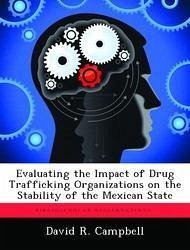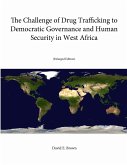Since 2007, when President Felipe Calderon declared his government's war on the drug trafficking organizations operating in his country, the level of narcotics related violence has increased dramatically. The violence, which had been largely confined to factions of the cartels, now threatens every citizen and is devastating the economy of the border region. This thesis evaluates the impact of Mexican drug cartels on the stability of the Mexican State and on the security of the U.S. The primary conclusion drawn is that the Mexican state is unlikely to fail as state failure is defined, but the Mexican government is likely to return to a one party system under which drug trafficking and corruption are tolerated but the violence does not directly affect the average Mexican. While current U.S. efforts toward increased border security and assistance to Mexico in the form of the Merida Initiative have made positive impacts, it is only by decreasing U.S. demand for illegal narcotics and encouraging Mexican economic growth that both nations can make real progress in the drug war.








